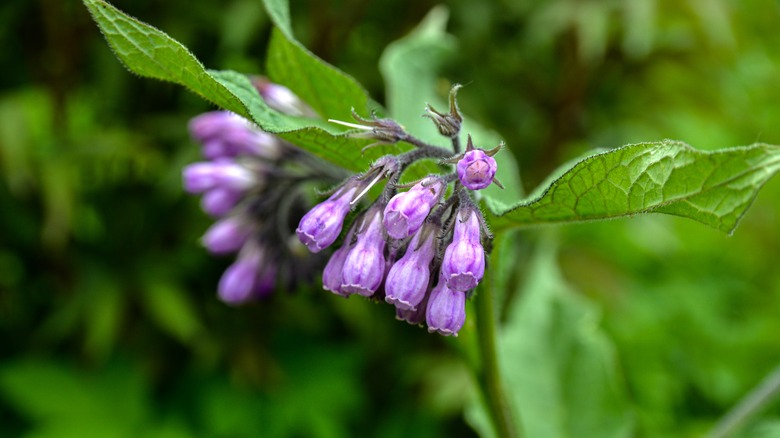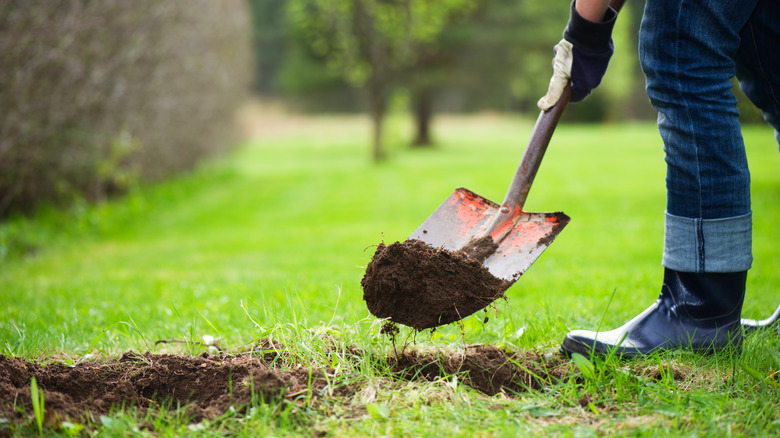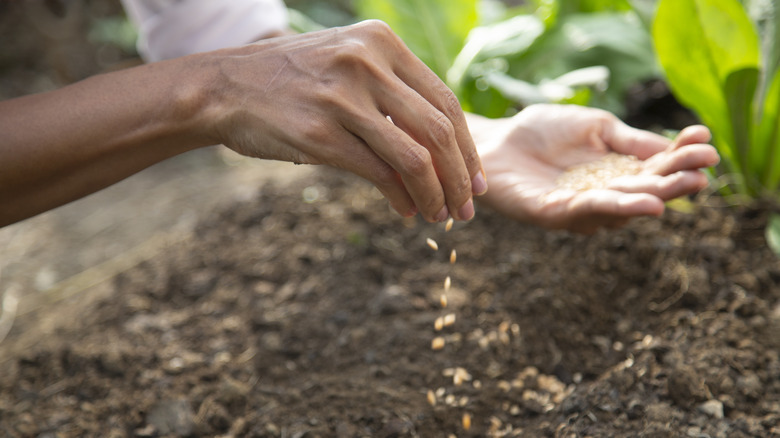The Common Mistakes You Should Avoid When Planting Comfrey In Your Garden
We may receive a commission on purchases made from links.
When it comes to contributing to the health of your other plants and your garden's overall soil quality, there is no better team player than comfrey. This is the plant you should grow in your garden for healthy soil. It holds a higher protein percentage than any other plant in addition to the powerful punch of phosphorus, nitrogen, potassium, and vitamin B-12 it provides. Considering all its benefits to the surrounding area, it's easy to see why any gardener would want to plant comfrey in their garden. Unfortunately, it's also easy to find yourself stumbling into common comfrey planting mistakes.
If you aren't careful when choosing where to plant your comfrey or where you source it from, you could find yourself disappointed by your experience with the plant. Consider this your guide to common mistakes made by beginner gardeners when it comes to planting comfrey. By simply avoiding these missteps, your new comfrey can thrive in its dedicated patch of soil in no time.
Mistake: Choosing a temporary location
The reason behind comfrey's almost eerily high protein and nutrient profile is its uniquely long taproots. Comfrey's roots reach down a stunning 10 feet or deeper into the soil, allowing the plant to feed on nutrients completely untapped by surrounding foliage. All of this is great news for comfrey and for your garden as a whole but it's not so great for you if you decide that you'd prefer to move your comfrey to another location.
Once comfrey has been established in a particular spot, it is nearly impossible to eradicate. Not only are the plant's roots extremely long but they also respond to disturbances by growing a new plant. This means that unless you are willing to dig 10 feet or deeper to remove all the roots whole, attempts to remove the plant will likely end in you cutting the roots and causing a new comfrey plant to sprout from each severed root. Each comfrey plant has a natural lifespan of around 20 years. Before you plant your comfrey, make sure you're absolutely certain of its placement.
Mistake: Transplanting wild comfrey
Any time you desire a specific plant in your garden, it is tempting to dig up and transplant the wild varieties you've spotted in your area instead of paying for a seedling or seeds. While this approach may work with plants like colorful wildflowers, attempting to transplant wild comfrey into your garden is a mistake. While they may share a name, the two are not the same genus. Wild comfrey and garden comfrey are also not equal when it comes to nutrients. The wild variety will not offer the same health boost to your soil. You could also easily end up accidentally transplanting an invasive weed known as Green Alkanet, which looks exactly like wild comfrey, into your garden by mistake.
Luckily, garden comfrey is easy to come by, affordable, and very simple to grow. You can purchase 100 comfrey seeds from the Outside Pride Store for just $6.49 on Amazon and plant them directly in the ground. As long as you plan the location of your comfrey plant appropriately and make sure to plant proper seeds or seedings, your garden will enjoy the benefits of this super-plant for years to come. You may even come to love its signature droopy purple flowers.


